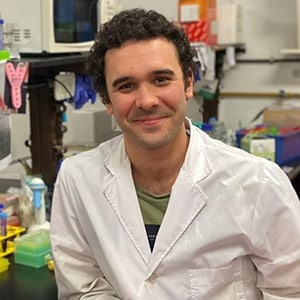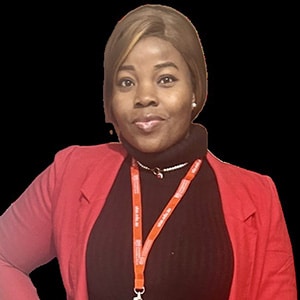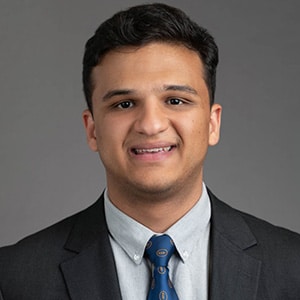Over the past five years, more than 100 talented scholars from countries with emerging economies have been invited to attend the American Association for Cancer Research (AACR) Annual Meeting as part of the Global Scholar-in-Training Awards (GSITA) program. This provides early-career researchers from around the world with an opportunity to further their professional development, but they often yearn for more ways to learn, train, and network long after the meeting has ended. On August 30, 2023, the AACR Global Scholar Alumni Committee (GSAC) was officially announced to support the career development of GSITA alumni, serve as their voice within the AACR, and help to develop initiatives and services to address their needs.
The inaugural GSAC members are:
As we mark the one-year anniversary of GSAC’s formation, we talked to the committee members about what has been achieved so far, the impact it has made on GSITA alumni, and what’s next.
What have been some of the major accomplishments of the GSAC in its first year?
Chai: We worked closely with the AACR Global Affairs office to form a LinkedIn group, which has become a professional networking hub for over 50 GSITA alumni. We started things off with a virtual icebreaker post where all the GSITA alumni took turns introducing themselves to help foster interactions between those with a common interest. We also ensure that we are actively posting content on topics and resources useful for the GSITA alumni such as grant opportunities and conference information, as well as offering an exchange of ideas and experience on professional career development.

Sanchis: We consider continuous training to be at the forefront of professional advancement and a key pillar in the scientific community. Thus, we organize webinars and workshops according to the interests and needs of the alumni. So far, we were pleased to welcome Jakob Nikolas Kather, MD, from Technical University Dresden, who shared how the latest advances in deep learning applied to cancer research; AACR Past President Elizabeth Jaffee, MD, who is the current chair of the AACR Global Affairs Committee and the deputy director at the Sidney Kimmel Comprehensive Cancer Center at Johns Hopkins, who spoke about tumor biology; and Jennifer Hoppe, MPH, and Tony Wu, PhD, from AACR Project GENIE, who delivered an insightful talk on an international effort to improve clinical decision-making through precision oncology.
Of course, a scientific career is not only based on science stuff. More and more soft skills are becoming trending topics within the scientific community. How to write a grant a proposal, how to achieve work-life integration, resilience, self-marketing, and so on, are skills that may seem innate but, quite the opposite, are continuously evolving. In this regard, we have also included soft-skills webinars as part of our offerings to the alumni.
How do you ensure you are offering GSITA alumni the resources and opportunities most relevant to them?

Adewunmi: We facilitate open dialogue during our quarterly meetings through live polls and a dedicated time for questions among members to strengthen connections and address concerns. Plus, our icebreaker sessions have offered a fun and informative way to interact with GSITA alumni. Through sharing personal insights about themselves, alumni have helped us build a stronger sense of community.
Abushukair: Our efforts have been guided from day one by the feedback and input provided to us by our diverse pool of GSITA alumni to ensure the highest levels of satisfaction and benefit for our fellow alumni. By continuing this feedback loop and further expanding the dialogue with all GSITA alumni, we can ensure even more tailored and specific topics are tackled that would be of relevance and interest to the majority of GSITAs. In future events, we aim to provide GSITA alumni the opportunity to share their journeys and experiences with everyone to help amplify their reach and message.
What impact have you seen from these initiatives so far?

Sanchis: As part of our commitment to boosting our alumni’s professional advancement, we are continuously sharing opportunities and success stories that serve as inspiration for others. This is what Agustina Sabater, a 2023 recipient from Argentina, told us about being a GSITA alumni: “The distinct honor of being part of this springboard group enabled me to secure opportunities to further present my work, network, and stay abreast of scientific advancements at the 2024 European Association for Cancer Research (EACR) Annual Meeting by leveraging my GSITA experience and background during the application process to obtain a travel grant. I am fully convinced that the GSITA continues to open doors long after the AACR Annual Meeting is adjourned.”
What’s next for the GSAC in the coming year?
Chai: We are planning to organize more interactive workshops and networking sessions that will try to engage the more senior and successful GSITA alumni to be involved as speakers as well as mentors to the newer batch of GSITA alumni. We also plan to form a small interest group based on a specific focus of research with a GSITA alumni nominated to lead the quarterly meeting, which could include forum-based discussions or a journal club. Our ultimate goal is to make the GSITA family a global, united, and strong task force against cancer.


